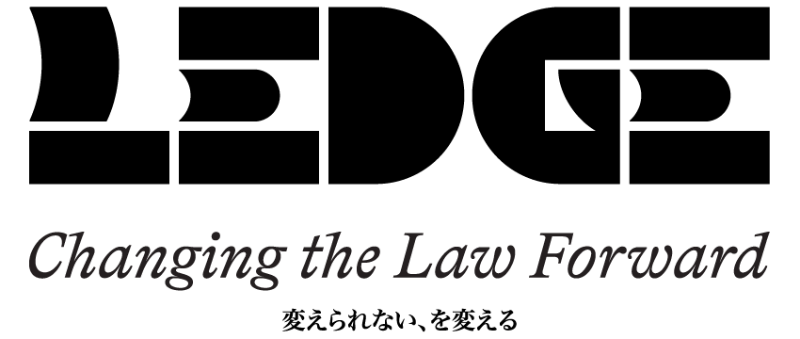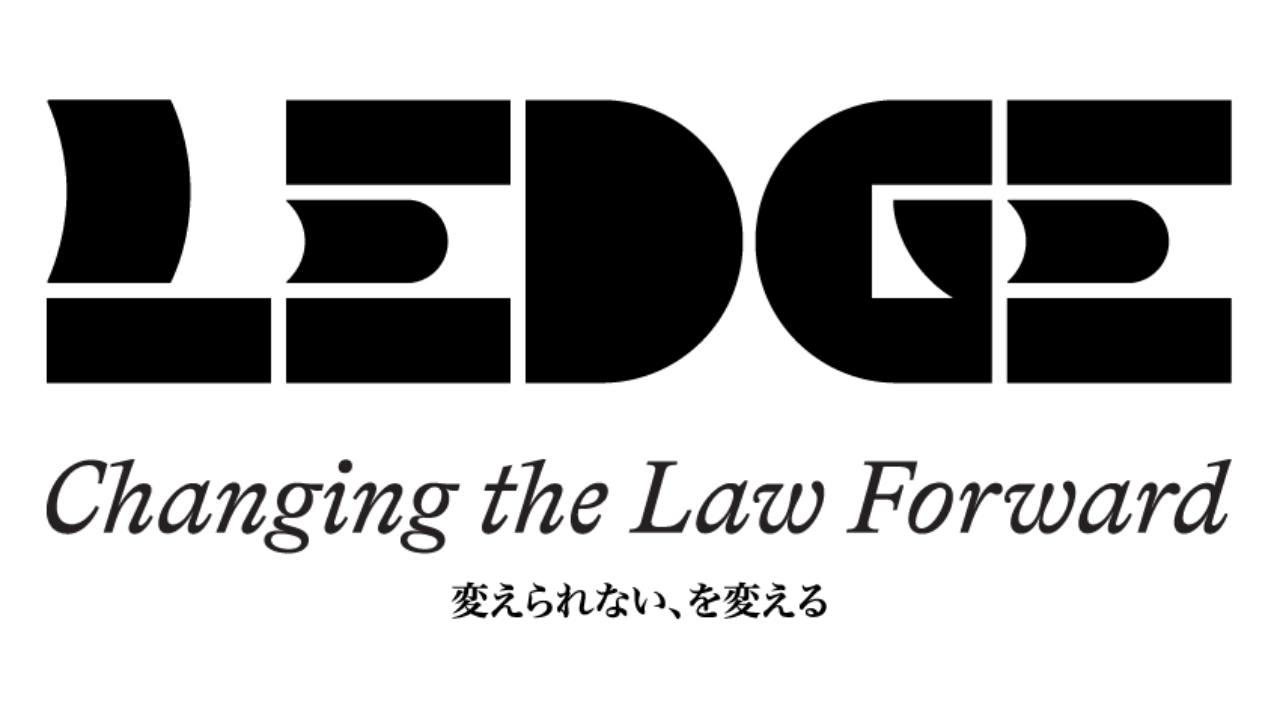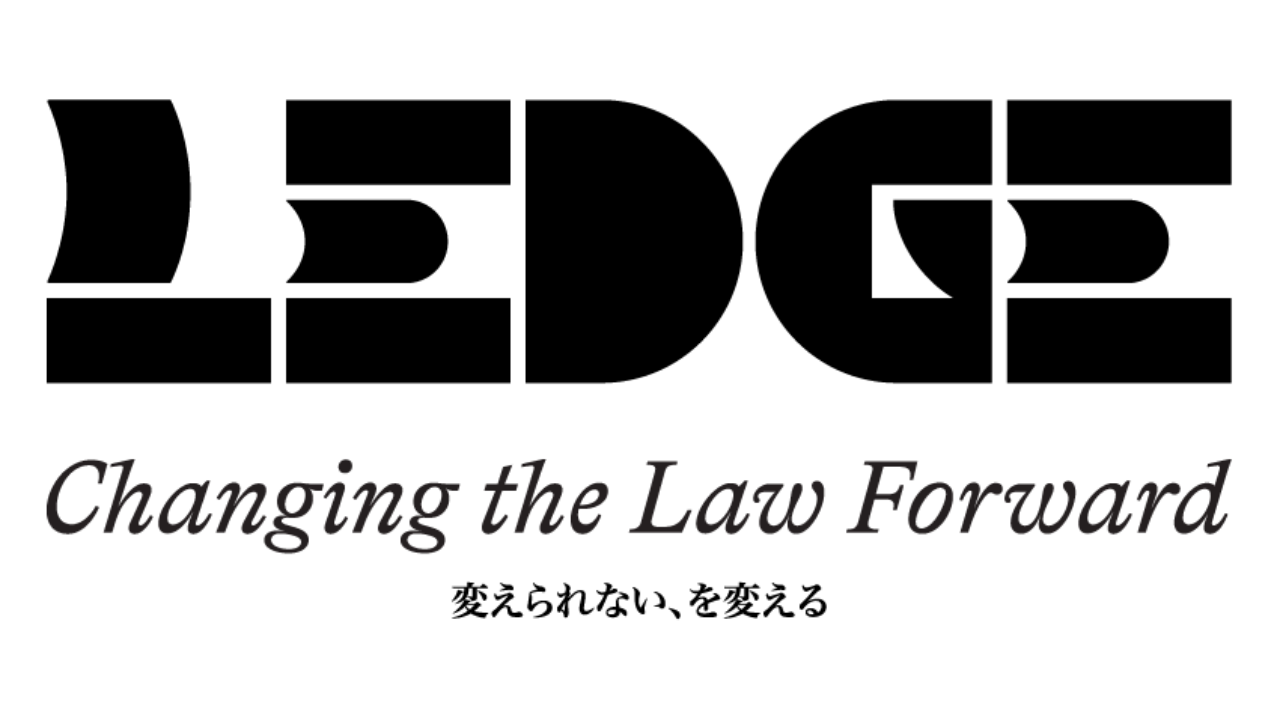
Have you heard of Public Interest Litigation?
There are many unreasonable things in our society today.
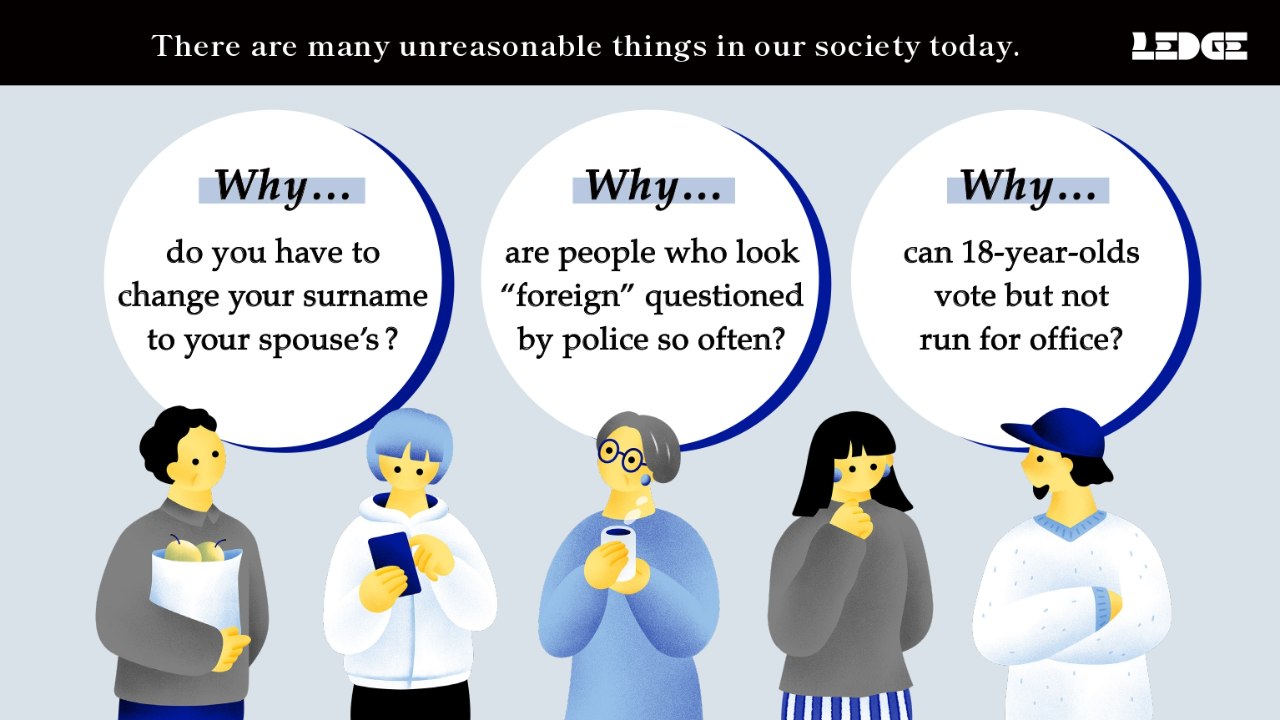
There are many actions we can take to tackle these issues, such as by voting as a form of expressing your opinions, by spreading awareness through petitions and social media, and by one of the most powerful options, public interest litigation–an approach that can demand rectifying and amending regulations through the judiciary.
We define public interest litigation as lawsuits against the state and municipalities aimed at resolving social issues. Various unreasonable things in society are tried in court for their constitutionality and the need for rectification. If and when the court rules in our favor, the judicial power gives an order to the state and/or municipality to rectify that unreasonableness. Unlike legislation or the administration where majority rules, the judiciary allows for even minorities’ voices to be heard.
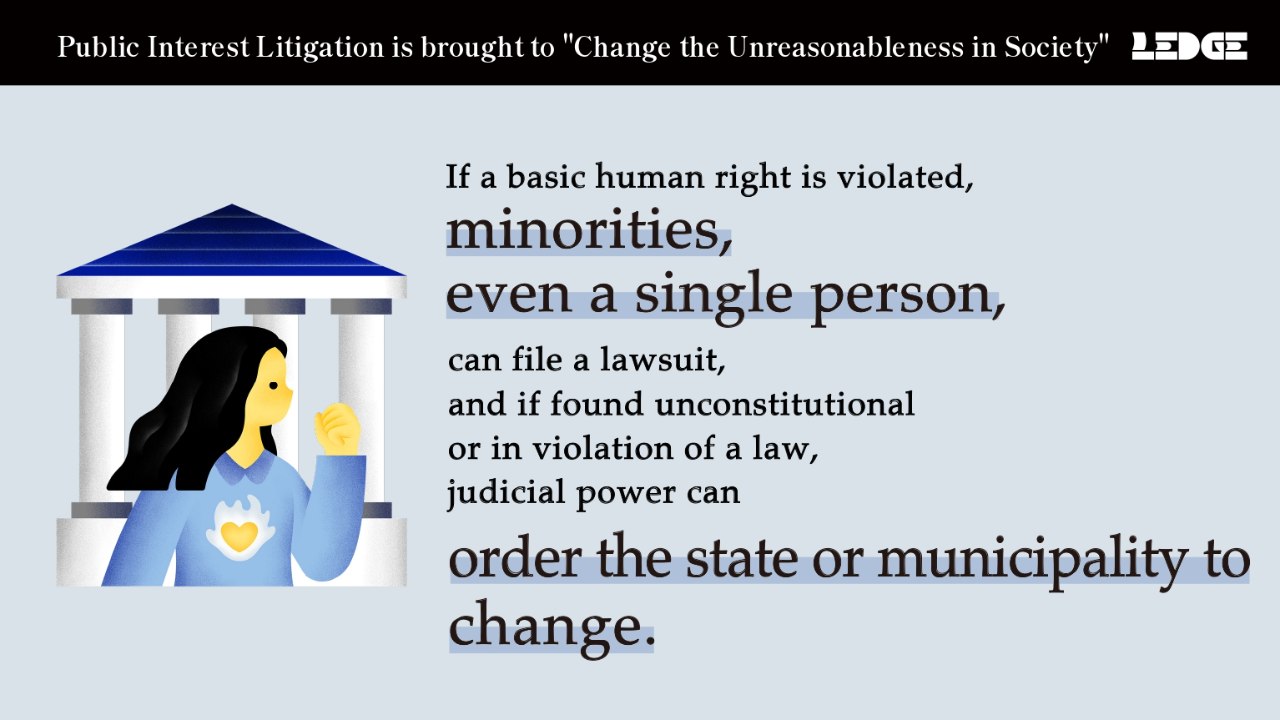
Minorities, even a single person can raise their voice, and if it is found unconstitutional or in violation of a law, the judicial power can order the state or municipality to change. This is the power and hallmark of public interest litigation.
In the public interest litigation world, Japan is a “developing country”?
Despite how powerful public interest litigation can be, the number of lawsuits brought in Japan is staggering compared to leading nations, which can be attributed to Japan’s structural challenges.
In Japan, there is a dire shortage of lawyers who work on public interest litigation, because it is not lucrative–lawyers work on a pro bono basis, even paying expenses like their own fees and litigation costs out of pocket, and devote a significant amount of time to them. Even active lawyers who are passionate about bringing about change would work on only 2 to 3 cases at most in their lifetime.
The lack of expertise in a particular field or the power to organize also makes it extremely challenging to initiate and carry out strategic and impactful public interest litigation.
This creates the negative loop of fragmented knowledge and expertise in public interest litigation and the constant lack of manpower and power to organize, which leads to a wider rift between the counterparties–the state and municipalities–who have significantly more resources, making impactful public interest litigation an incredibly challenging task to fulfill.
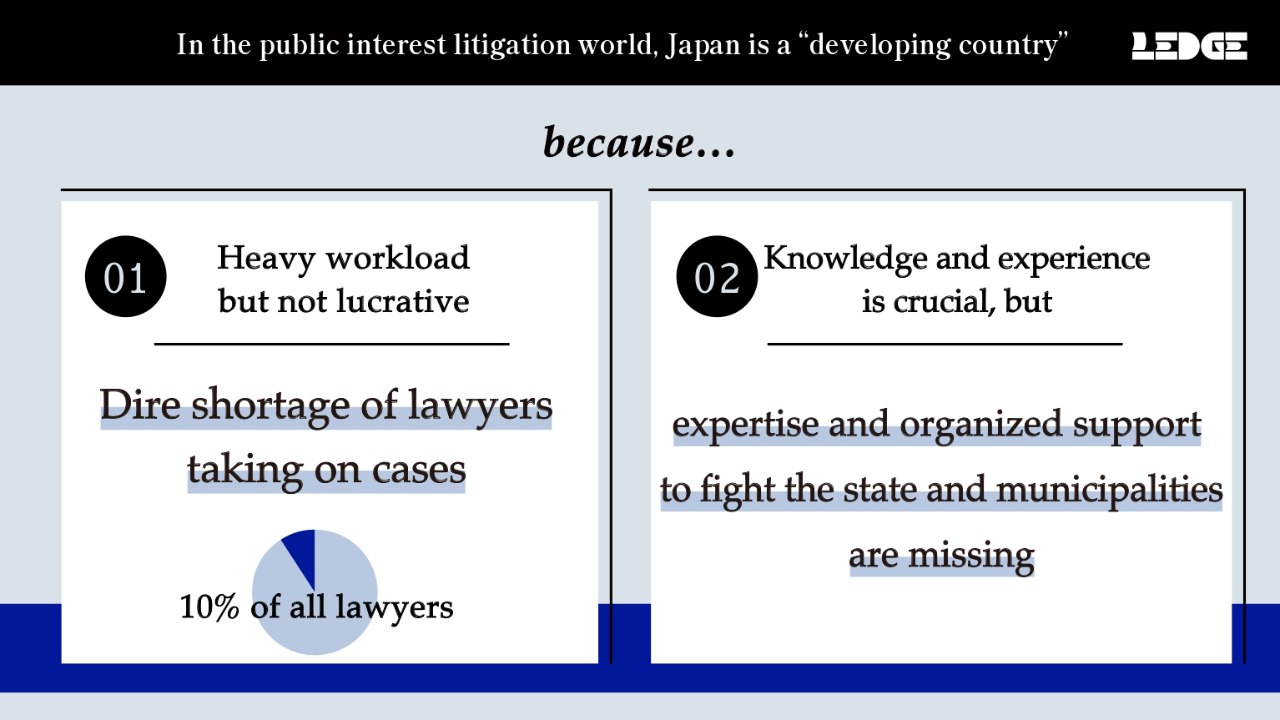
Unlike Japan, other countries have well-established organizations dedicated to strategic litigation.
For example, the American Civil Liberties Union (ACLU) has achieved landmark successes, such as winning a supreme court ruling overturning state bans on same-sex marriage for the first time in US history, and securing an injunction against the Trump administration’s travel ban against Muslim-majority countries. With an annual budget of $420 million and 500 attorneys along with thousands of pro bono attorneys working side by side with researchers and campaigners nationwide, the ACLU demonstrates the scale of impact possible through strong legal and organizational support.
The scale of funding and organization is commensurate with its track record–the U.S. Supreme Court has ruled over 150 federal and 800 state laws unconstitutional, showing the potential for change achievable through strategic litigation.
This shows how expertise and organized support is crucial in successful public interest litigations.
In Japan, there have been only 13 cases historically in which the Supreme Court has deemed laws unconstitutional, highlighting how limited public interest litigation is in Japan compared to other countries.
Japan’s first specialist team for public interest litigation, LEDGE
LEDGE is Japan’s first specialist team that came together to take on this challenge with strategy, professionalism, and passion, to change laws and advance society forward through public interest litigation.
LEDGE amasses critical resources from society to provide a breadth of support for attorneys to carry out a meaningful public interest litigation. We raise awareness about issues that we tackle, invigorate public opinion, and conduct campaigns to call for administrative and political change, while also leading advocacy activities around the cases in an impactful cooperation with international institutions, such as the United Nations, and domestic and foreign citizen groups.
Since our founding in October 2023, we have directed and supported 8 public interest litigation cases (as of June 2025), but we are far from done yet–our target is to support a total of 30 cases in the next 5 years.
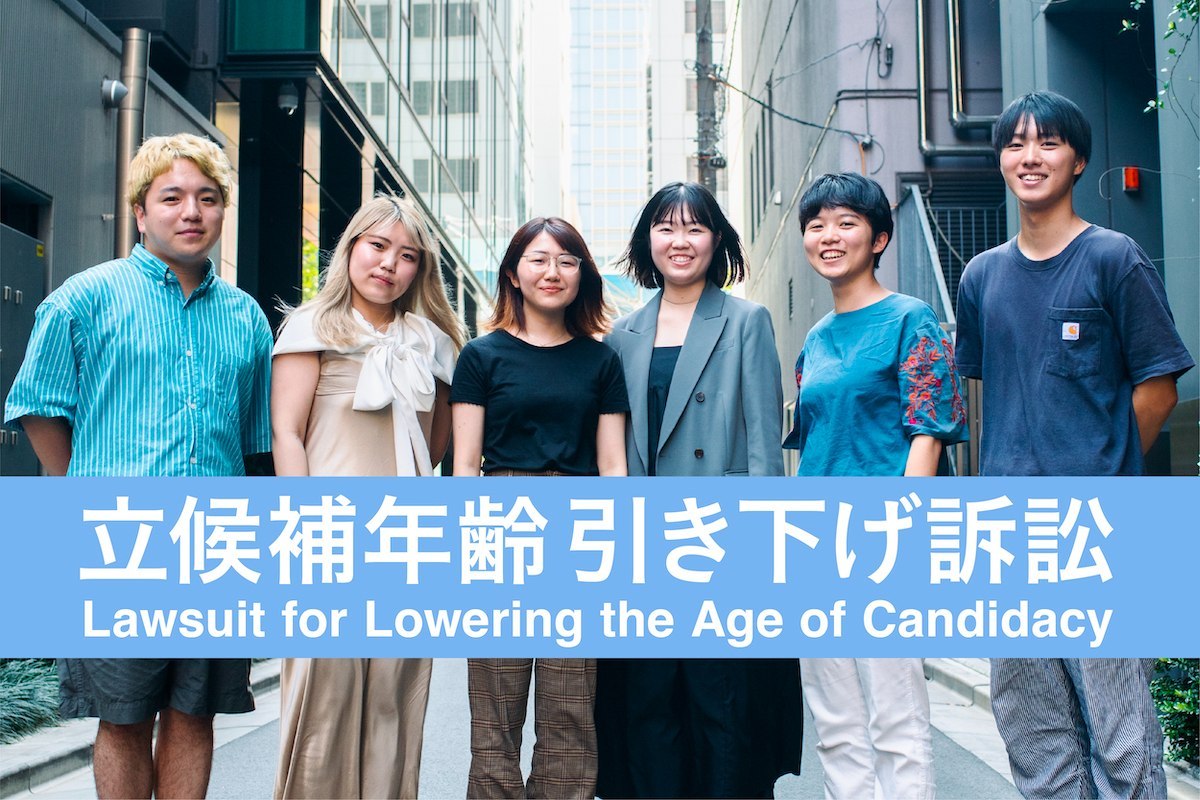
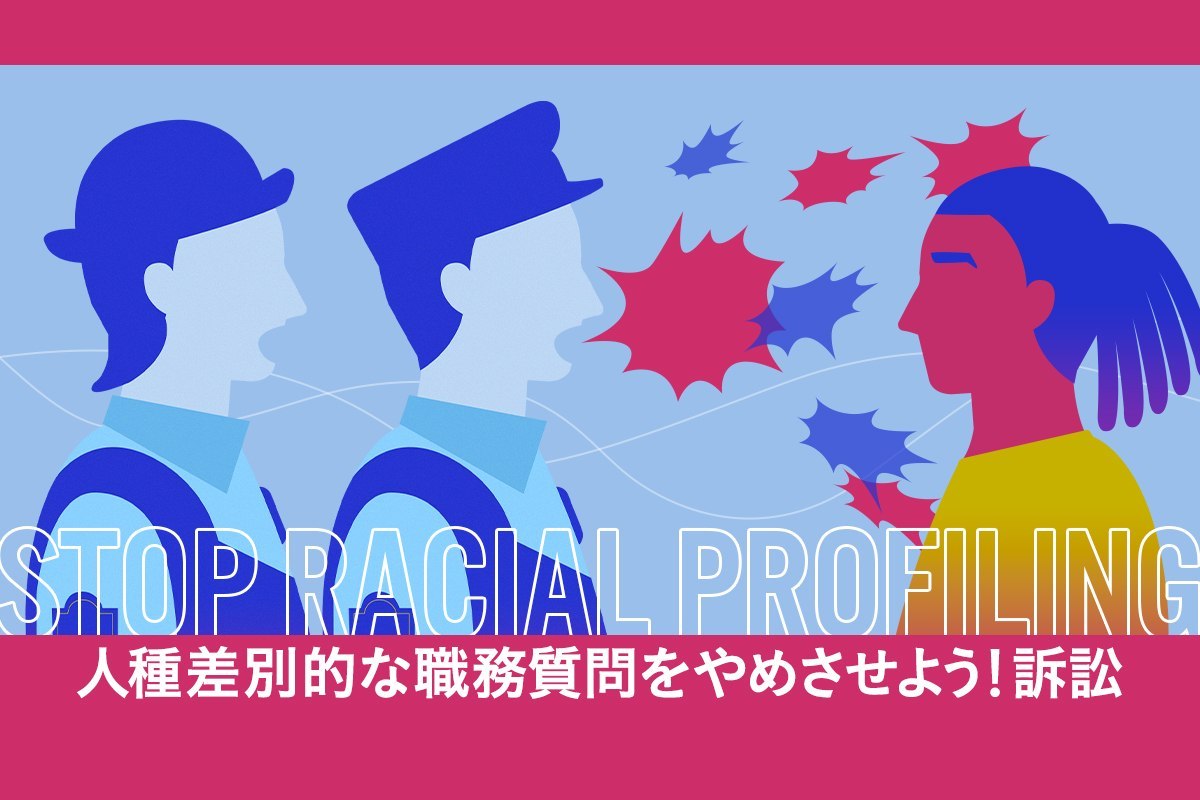
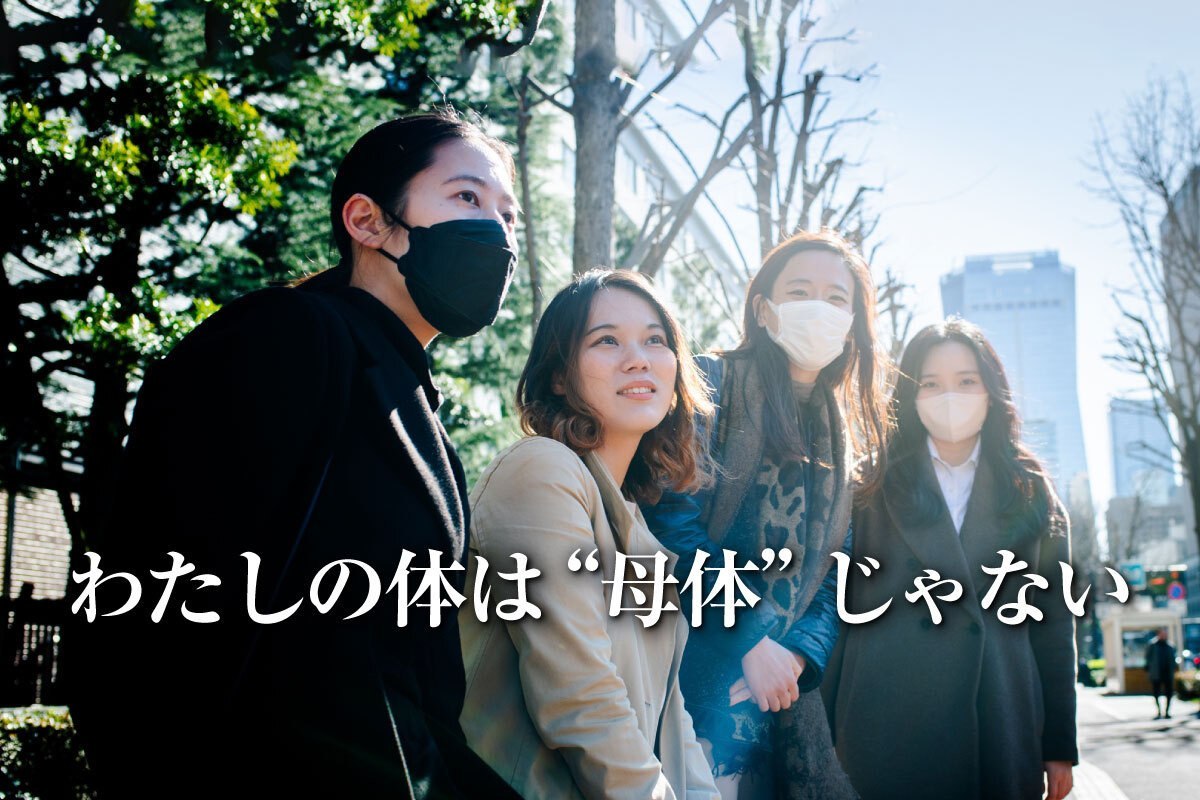
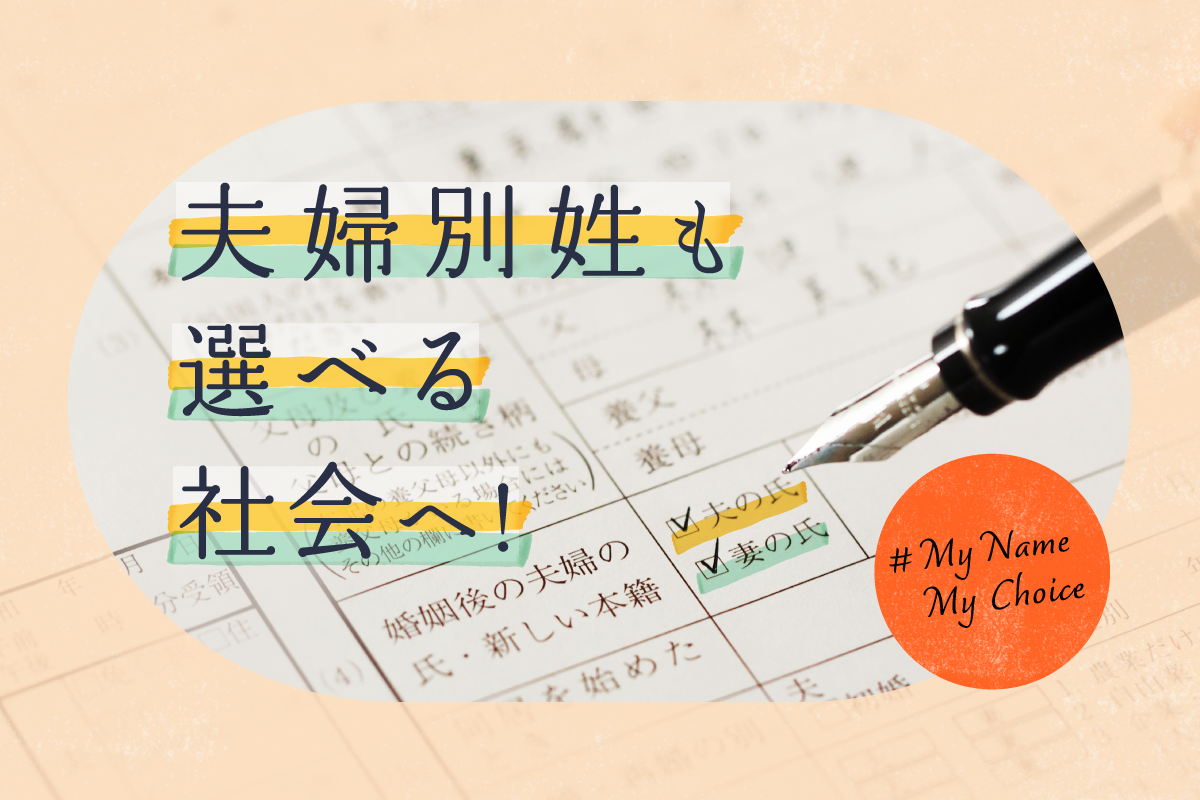
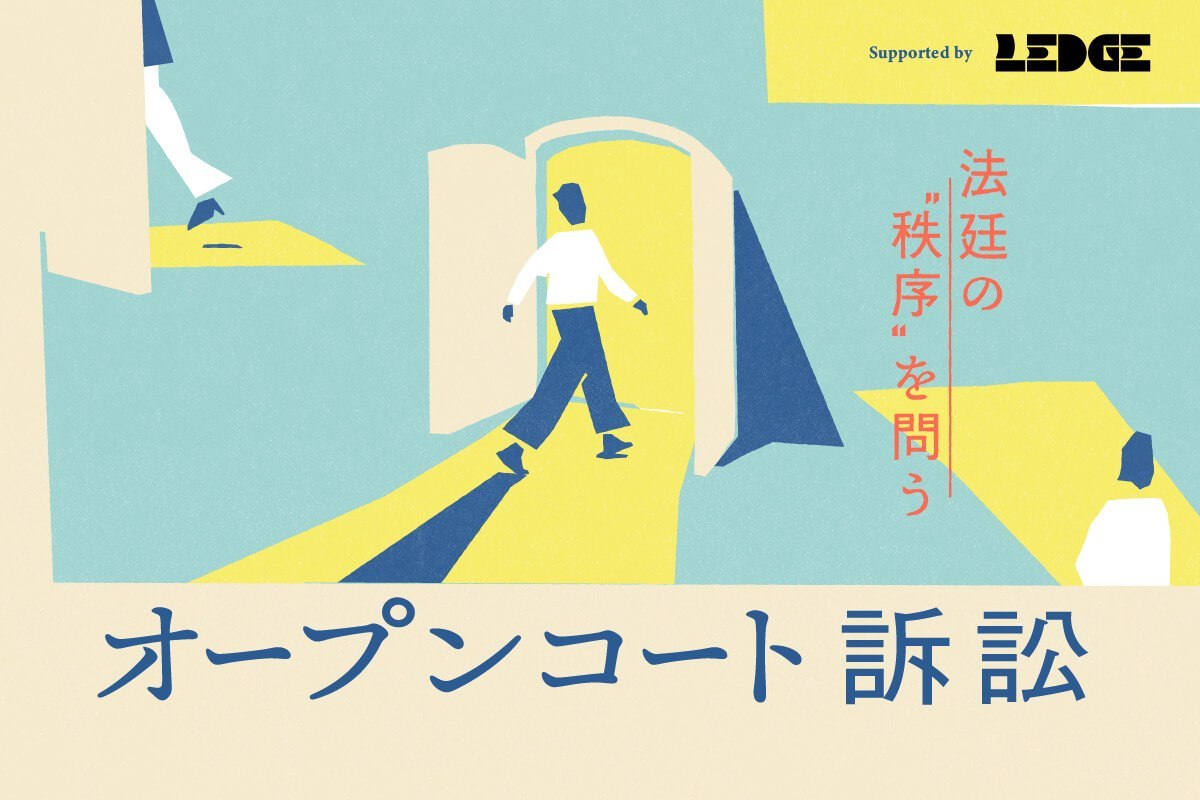
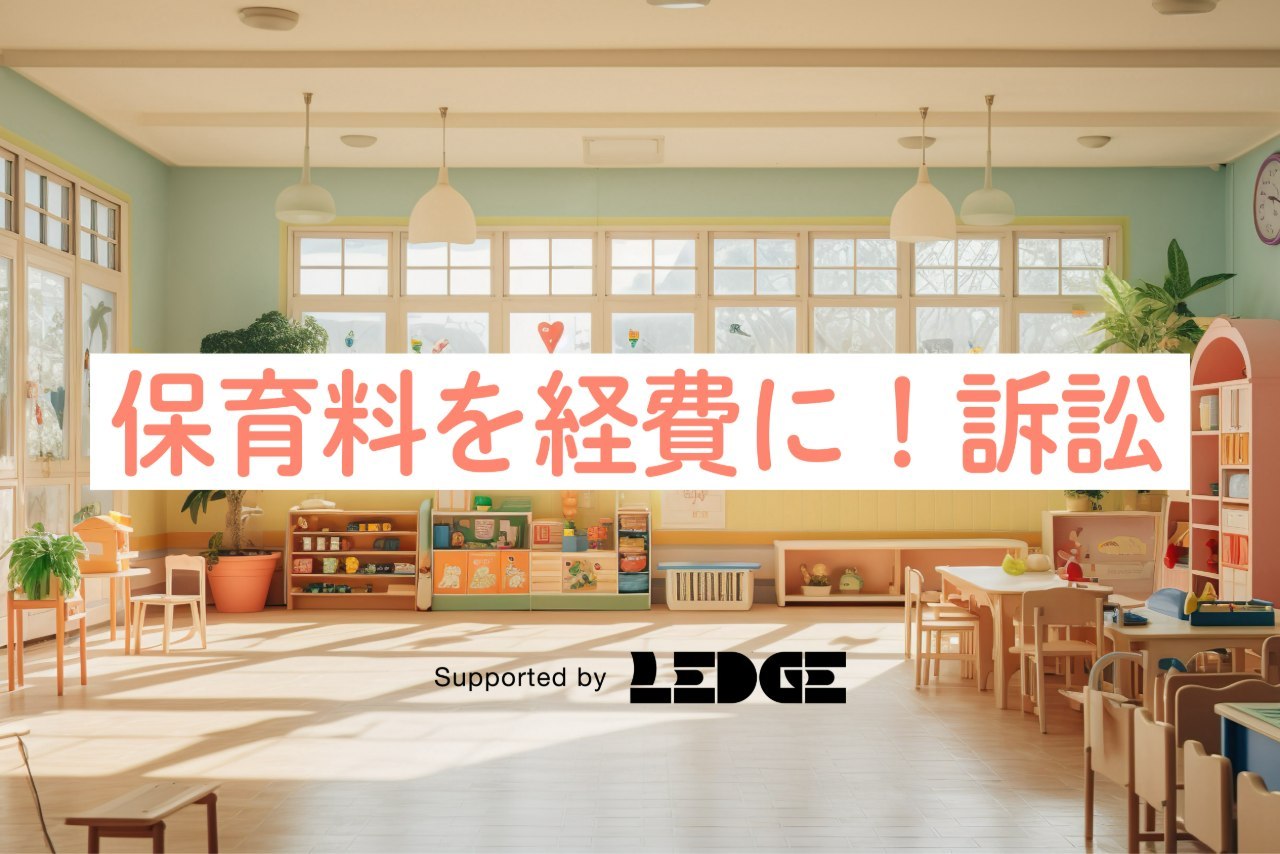
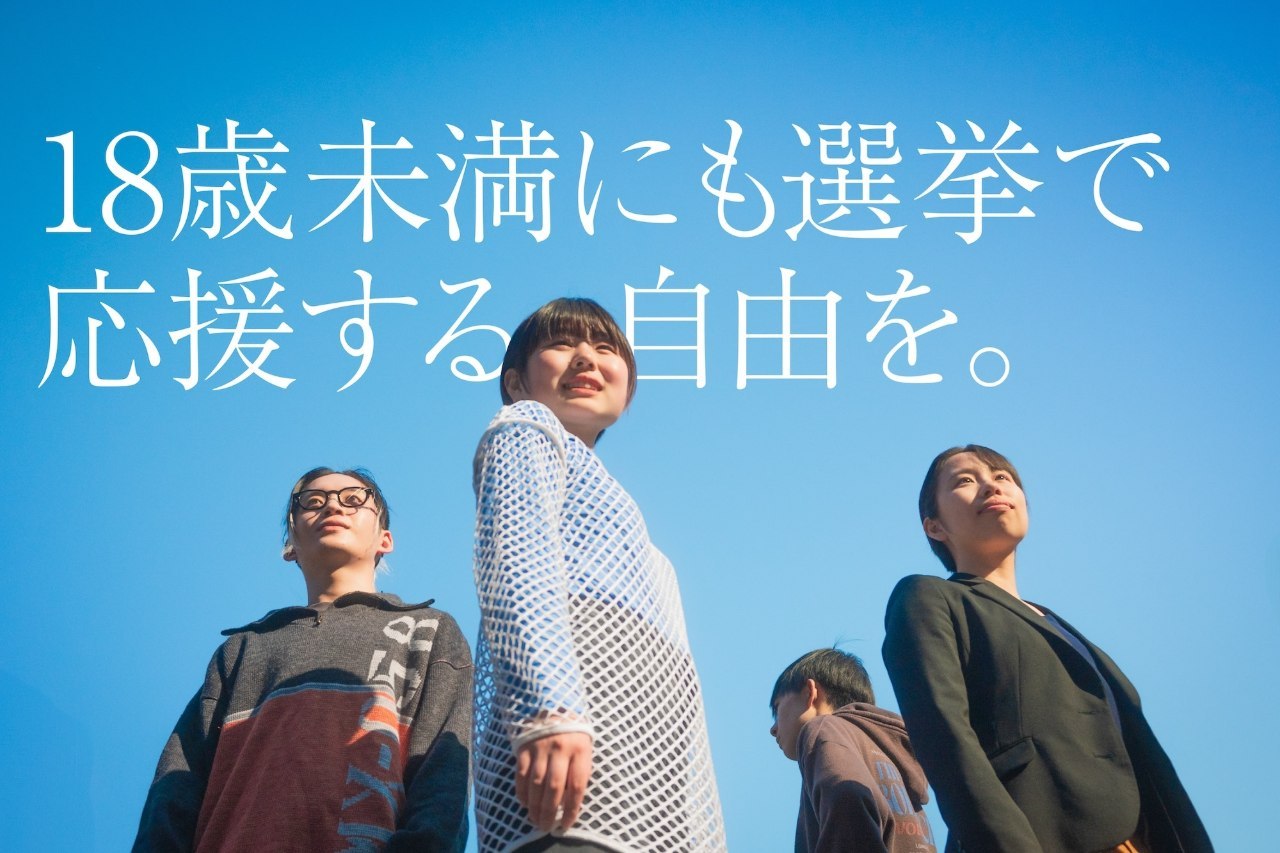
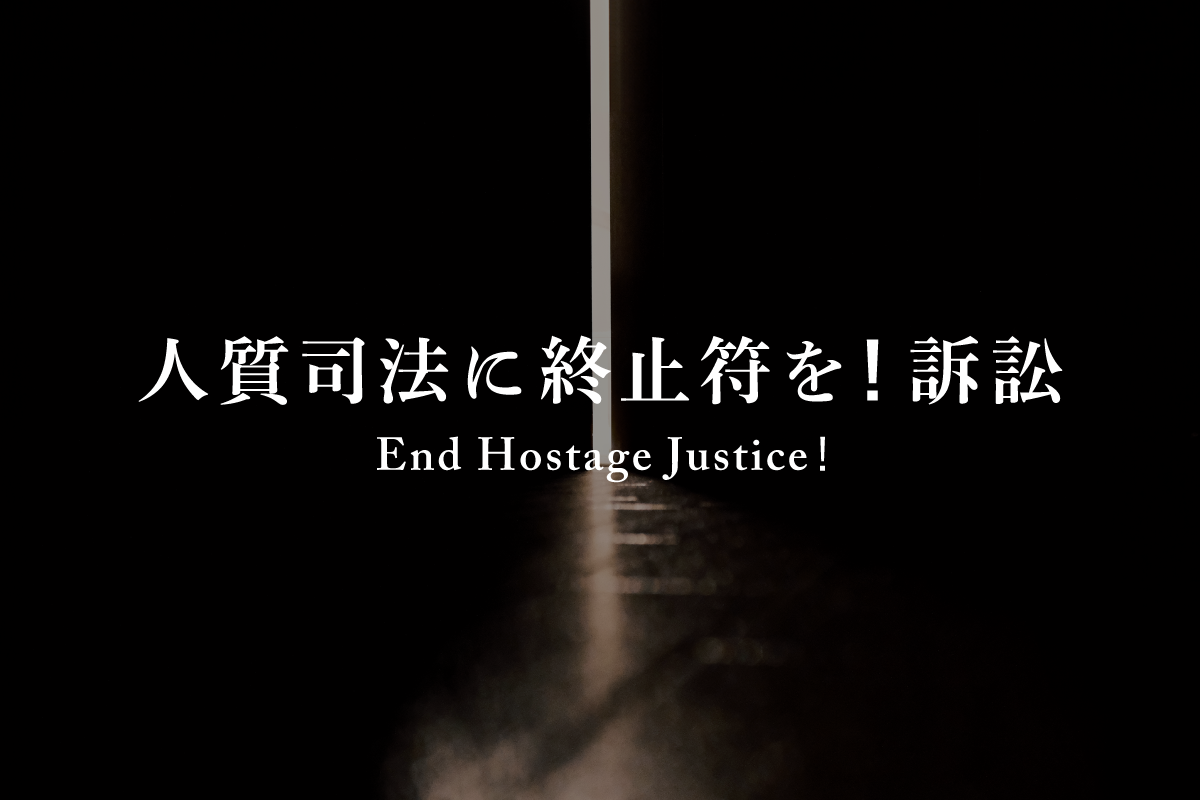
Two “Changes” LEDGE is making through the power of the judiciary
LEDGE is making two major impacts–change in the system of society, and change in the mentality of society.
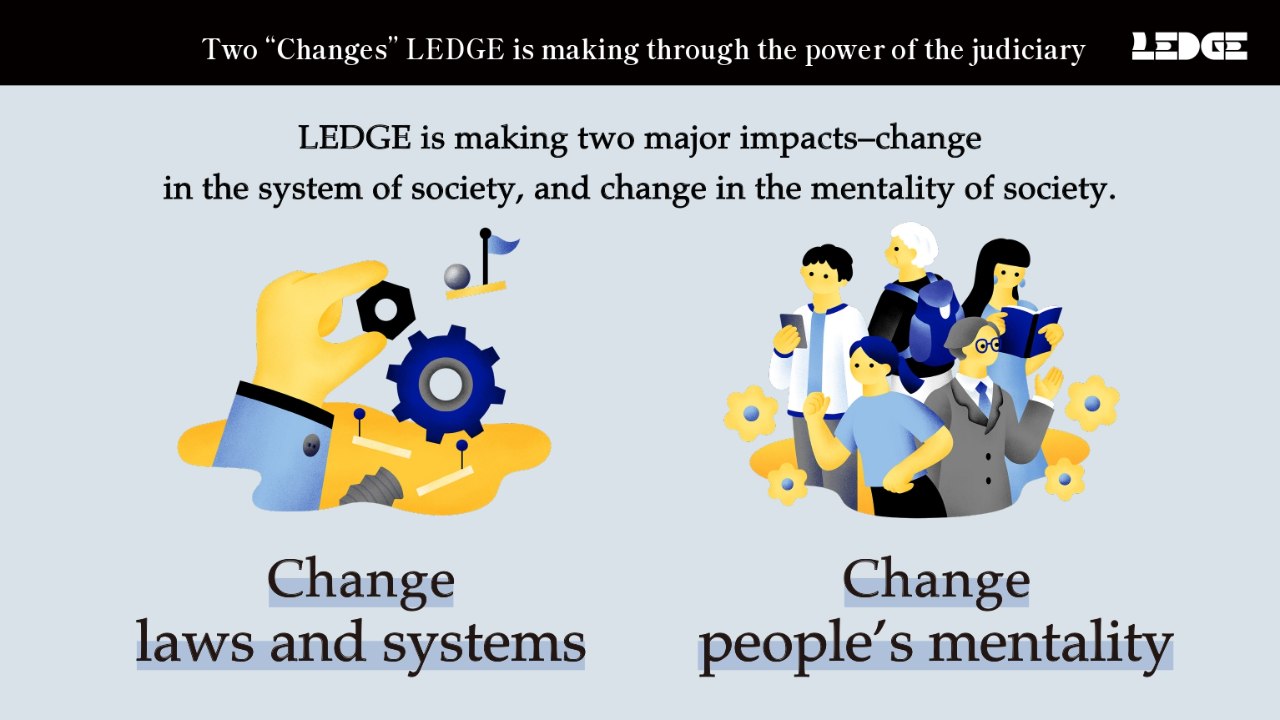
Once a court rules a law or public policy that is a point of contention in each case supported by LEDGE unconstitutional, the National Diet or the administration will abolish or amend the law or public policy in question according to the court’s judgement, effectively changing the rules and bringing change to the system of society.
This does not stop at whether the litigation is a victory or defeat to the plaintiffs–the litigation process itself brings change to the mentality of society. Everyday citizens are empowered and encouraged by the courage of the plaintiffs speaking out against the state. This creates a more inviting environment for citizens to raise their voices and buttresses the media and ordinary citizens’ engagement level, resulting in a shift in public opinion and leading to a change of rules in the legislative process.
Be a part of the change, donate to LEDGE today
LEDGE’s activities will only accelerate, working towards making a more just society through our projects leveraging the power of the judiciary. In order to do this, we must establish a firm financial ground and raise funds consistently, but it does not mean we could secure the funds from just anywhere.
Public interest litigation, by definition, involves not just the plaintiffs but also the force of citizens living in society to solve social issues. Donations from everyday citizens make a successful public interest litigation possible, and the positive impact on society made by the process and outcome of the lawsuits are felt by all citizens in the end.
The donations raised will cover operational expenses of LEDGE (human resources cost, operational expenses for each case, office rent, transportation, etc.) to lead public interest litigation, and will be spent in an efficient and effective manner.
Together we can change questionable systems and the way things are in society by leveraging the judiciary in society’s best interest. We hope you will join us in this journey that has just begun, to change Japanese society for the better.
